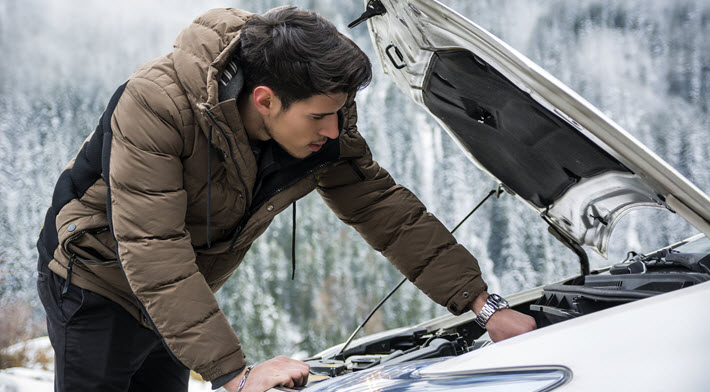Your car’s engine is the heart of your vehicle, constantly working to keep your vehicle’s performance high and running dependably. Not only will it power your car but it also plays an important role in your comforts inside the car as well, with things like the heater drawing power from the engine to help keep your warm during the freezing winter months. In some places Winter is less of a season and more just a couple of colder than usual days but in the places with extreme cold and heavy rain and snowfall, the beating that the elements can put on your car can’t be overstated. Even in those areas with more moderate winters, cold temperatures and constant freezing and thawing can be hard on your entire vehicle.
Taking care of your car’s engine during the cold winter months will help avoid any unwanted damages or accelerated wear and tear. While maintenance is recommended annually to keep your vehicle’s engine and other components in top shape, here are tips to follow to help prepare you and your vehicle for the winter months that will help you to avoid any damage to your car’s engine as the temperatures drop and the rain and the snow fall.
Some important tips to follow
- Get Your Oil Changed– Old and dirty oil is never good for your engine but in the wintertime it can be even worse. In the cold, oil will become more viscous and if it’s older and dirty oil, it will become extremely thick and will eventually be unable to flow through the engine properly. This can lead to an accelerated build up of sludge and debris in the engine and can greatly affect your engine’s performance if left unrepaired and unnoticed. Some oil manufacturers even offer a different type of oil specifically for winter driving, usually your mechanic or vehicle’s manual itself will have recommended brands and times of oil best suited for your vehicle’s performance.
- Check Your Coolant– Your coolant will keep the engine from overheating but it is extremely easily contaminated, so checking the entire cooling system before winter is important to make sure your mixture is correct. A typical mixture of antifreeze and water is about 50/50 but in the colder months watching the level of antifreeze is important. If your coolant mixture contains too much water in the cold temperatures, then it can freeze which will block the coolant flow and can lead to engine overheating. Keeping your mixture at least 50% antifreeze will help to avoid overheating.
- Don’t Warm Up Your Engine Too Much– Contrary to popular belief, letting your engine warm up longer in the cold won’t actually help performance and can actually harm your engine over time. Letting your engine idle will put more gasoline into the combustion chamber and some of it can get onto cylinder walls and strip the oil off of the walls. The life of things like the piston rings and cylinder liners can actually be reduced significantly when gasoline washes off lubricating oils. The best way to warm your engine up is to actually just begin driving it. If you wait a minute or two and begin driving at a reasonable pace, your engine will heat up within about 5 to 15 minutes.

Final thought
Following the proper steps to care for your engine will help extend the life of your vehicle significantly. It will also keep your car performing at a high quality level and hopefully keep the costs of repairs and maintenance needed lower as well. In the winter months, your vehicle is subjected to more extreme conditions with freezing temperatures as well as rain and snow and if your engine isn’t prepared, it can be damaged by all of the elements it’s exposed to. Constant freezing of an improper coolant mixture can lead to freezing and engine blockage while even simply idling your vehicle for too long to warm it up can reduce the life of essential components in your engine as well.
Knowing what to check and look for while also knowing how to handle your engine in the cold winter months will go a long way to preventing complications with your engine and will help keep you safer on the roads.



